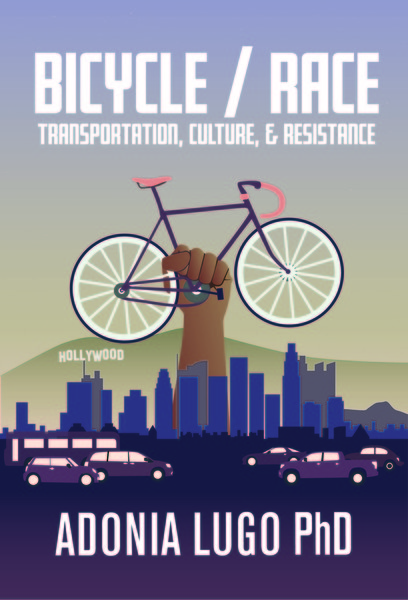I listened to the woman, a prominent activist who has fought hard for human rights, as she told me what a bicyclist was. It was a man, probably white, who rode streets with arrogance, entitled, privileged. He knew how to make his machine work for him, shifting gears before riding up hills. He didn't look silly like the person of color huffing and puffing up the steep slope to her neighborhood, she chuckled.
I thought about the sounds that would drift into our house on warm summer afternoons, when the horses behind the chainlink fence that separated our neighborhood from the stables had stirred glimmering dust into the breeze. Men's voices, shouting back and forth and laughing as they rode by in what I later learned was called a peloton. They used our neighborhood as a way to pass between the concretized waterways that in Southern California lead to the sea, along what used to be creeks and rivers. They were some of the only white people, besides my mother, the old man Diego, and police officers, who came through our neighborhood, but they did not stop to chat with anybody.
It reminded me too of the tricycle that generations of my family had ridden up and down the block where my grandma and great grandma lived, over harsh concrete that liked to stub my toes as I ran barefoot down the street to the beach. One day I was stopped by a laughing man and woman, who offered to oil the tricycle. I had never thought to notice the squeaks it made as I rode along, the only cousin of my age and thus often my own playmate. I felt ashamed and got away from them. To me the tricycle's squeaks were productive; I could turn it upside down and, passing flowers through its pedals and spokes, make ice cream.
Returning to the sound of her voice, sitting in the coffee shop in the gentrifying neighborhood, I wondered if I would ever convince anyone that bicyclists can be like me. Maybe I'm still trying to turn flowers into ice cream.

